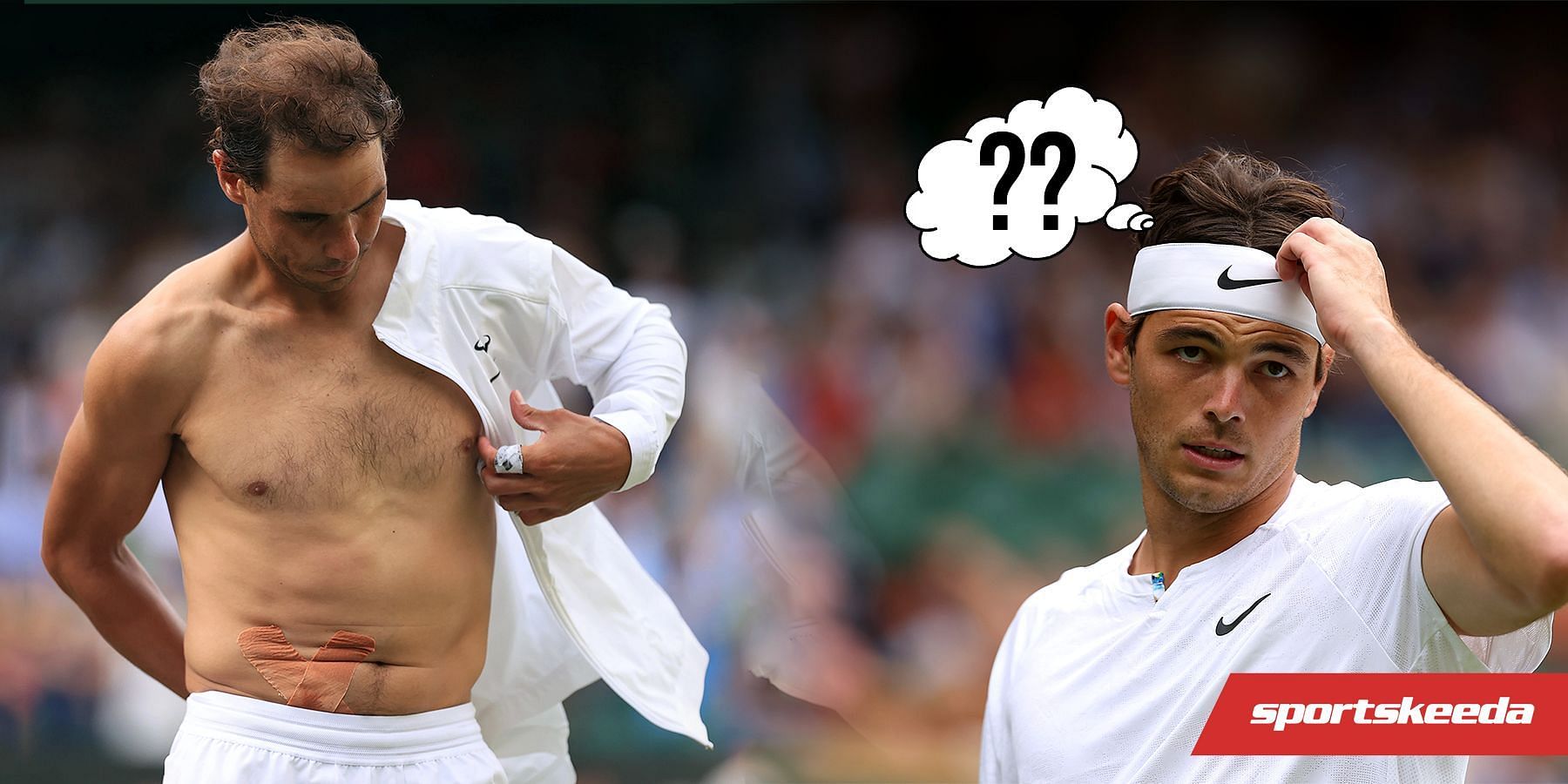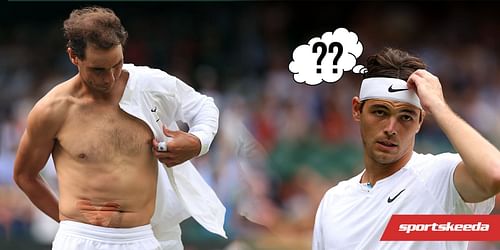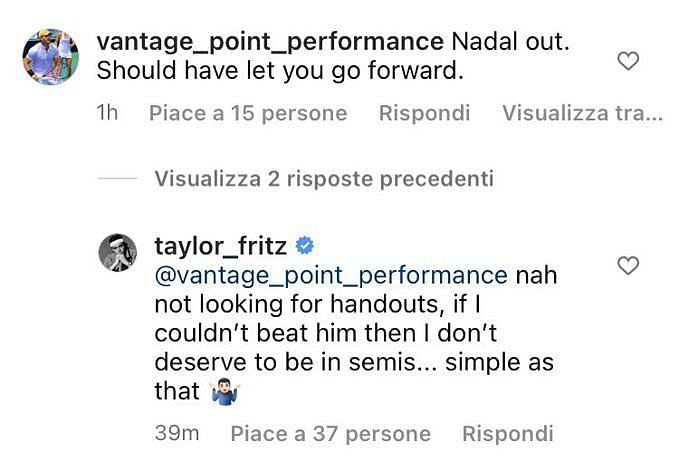
In light of Rafael Nadal's withdrawal from Wimbledon, should Grand Slams introduce a Lucky Loser system to protect the interests of fans?

Rafael Nadal fought through an abdomen injury, adjusted his game mid-match and dug deep to overcome Taylor Fritz in the quarterfinals of the 2022 Wimbledon Championships. Despite being urged by everyone in his player's box to retire, he chose to fight and inspire, setting up a tantalizing last-four clash with Nick Kyrgios.
While the tennis world applauded the Spaniard and was left in awe of his fighting spirit, the joy was short-lived as Nadal announced his withdrawal from the tournament after a scan revealed a seven-millimetre tear in one of his abdominal muscles.
Amidst crestfallen reactions to the news came an interesting question: should Fritz have replaced Nadal in the semifinals of Wimbledon by virtue of being the ‘lucky loser’? Should the American get a second chase? Does Kyrgios deserve to coast into his maiden Grand Slam final without having to fight for it?
A lucky loser is someone who has lost a match in qualifying but then enters the main draw to replace the qualified individual who had to withdraw from the tournament.
We have seen that come into play in the first round of Wimbledon this year, most notably when Matteo Berrettini and Marin Cilic had to pull out after testing positive for COVID-19, and replaced by Elias Ymer and Nuno Borges respectively.
It is rare for a lucky loser to win an ATP or WTA tournament, with just nine men doing it since 1978. The most notable man to do so in recent years was Andrey Rublev, who won the 2017 Croatian Open, while on the women’s side, a 15-year-old Coco Gauff clinched the Upper Austria Ladies Linz trophy in 2019.
Fans, ex-players and pundits have been divided on this issue. While some have called for Fritz to take on Kyrgios on Saturday, others have said that there are a multitude of reasons not to change a system that works.
Reputed journalist Christopher Clarey opined on Twitter that Fritz should have been given a spot in the semifinals of Wimbledon as a lucky loser, owing to Nadal’s late withdrawal.
“It happens so rarely, but I still think it's worth exploring. When a player withdraws this late in a Grand Slam or before a major tour final, the beaten player should be able to take the slot. In this case Fritz would play Kyrgios as a "lucky loser". The show must go on,” Clarey tweeted.
It sparked a discussion that has been going on since, with former World No. 1 Andy Roddick responding by emphatically disagreeing with Clarey’s opinion.
“No no no no no. You can’t lose in the semis and win a slam. No,” Roddick replied.
Roddick added that injuries and walkovers were part and parcel of sports.
“Sometimes it sucks in sports. The fact that there are no guarantees, handouts or second chances in a given game/match is what makes it so pure ….. putting that at risk for 3 more hours of entertainment isn’t even close to making that trade off,” Roddick said.
21-time doubles Grand Slam champion Pam Shriver had a different opinion on the topic.
“I feel for Taylor Fritz. Should tennis re-examine the lucky loser rule’s scope?” she said.
For what it’s worth, Fritz himself shut down the idea that he should take Nadal's place in the Wimbledon semifinal.
“Nah, not looking for handouts, if I couldn't beat him then I don't deserve to be in semis...simple as that,” Fritz said.
Amidst all this, another journalist, Simon Cambers, brought up the idea of having the lucky loser system in the main draw leading to possible match-fixing.
“One other thing about the lucky loser main draw debate, as tempting as it might be to allow it, it could open up another route to match-fixing. As unlikely as it may seem, players could deliberately lose, if they knew that the opponent would pull out later,” he said.
The lucky loser system makes sense in the first round of Majors. Players who lose in qualifying get another chance, while it avoids a depleted opening round filled with byes. That said, qualifying and the main draw are two extremes. What makes Grand Slams so unique and challenging is the knockout format where a player needs to navigate seven matches over 14 days to etch their name into history.
Fritz has had a wonderful Wimbledon campaign, no doubt. He surpassed expectations, beat the odds and is rightfully seen in a better light now. That said, he lost a grueling five-setter to a physically struggling Nadal. The idea that he gets another chance at taking home the Wimbledon title is, for the lack of a nicer word, preposterous.
Had he replaced Nadal and then gone on to win Wimbledon, there would forever remain an asterisk next to his name as a reminder that he won, not due to skill but thanks to circumstances.
In this sport, every win and every defeat has consequences. There are no gray areas between the two, and there should never be.
